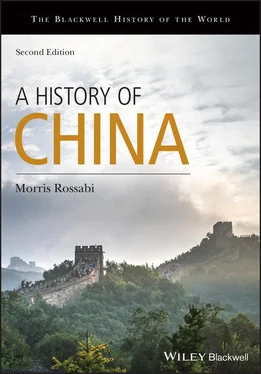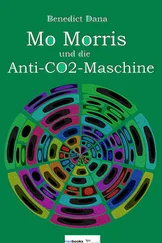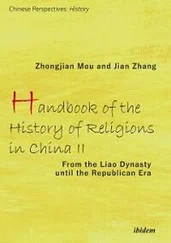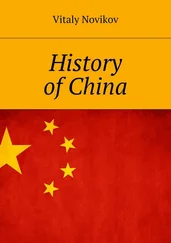398 376
399 377
400 378
401 379
402 380
403 381
404 382
405 383
406 384
407 385
408 386
409 387
410 388
411 389
412 390
413 391
414 392
415 393
416 394
417 395
418 396
419 397
420 398
421 399
422 400
423 401
424 402
425 403
426 404
427 405
428 406
429 407
430 408
There is nothing new in the attempt to understand history as a whole. To know how humanity began and how it has come to its present condition is one of the oldest and most universal of human needs, expressed in the religious and philosophical systems of every civilization. But only in the past few decades has it begun to appear both necessary and possible to meet that need by means of a rational and systematic appraisal of current knowledge. Until the middle of the nineteenth century, history itself was generally treated as a subordinate branch of other fields of learning, of literature, rhetoric, law, philosophy, or religion.
When historians began to establish history’s independence as a field of scholarship in its own right, with its own subject matter and its own rules and methods, they made it in practice not the attempt to achieve a comprehensive account of the human past but the history of western Europe and of the societies created by European expansion and colonization. In laying the scholarly foundations of their discipline, they also reinforced the Enlightenment’s belief in the advance of “civilization” (and, more recently, of “western civilization”), and made it, with relatively minor regional variation, the basis of the teaching of history almost everywhere for most of the twentieth century. Research and teaching of the histories of other parts of the world developed mainly in the context of area studies like those of ancient Greece and Rome, dominated by philology, and conducted through the exposition of the canonical texts of their respective languages. World history as such remained the province of thinkers and writers principally interested in constructing theoretical or metaphysical systems. Only toward the very end of the century did the community of academic historians begin to recognize world history as a proper and even urgent field for the application of their knowledge and skills.
The inadequacy of the traditional parameters of the discipline is now widely – though not universally – acknowledged, and the sense is growing that a world facing a common future of headlong and potentially catastrophic transformation needs its common history. Its emergence has been delayed, however, by simple ignorance on the one hand – for the history of enormous stretches of space and time was known not at all, or so patchily and superficially as not to be worth revisiting – and on the other by the lack of a widely acceptable basis upon which to organize and discuss what is nevertheless the enormous and enormously diverse knowledge that we have.
The first of those obstacles is now being rapidly overcome. There is almost no part of the world or period of its history that is not the subject of vigorous and sophisticated investigation by archaeologists and historians. The expansion of the horizons of academic history since the 1980s has been dramatic. The quality and quantity of historical research and writing has risen exponentially in each decade, and the advances have been most spectacular in the areas previously most neglected. Nor have the academics failed to share the results of their labors. Reliable and accessible accounts are now readily available of regions, periods, and topics that even twenty years ago were obscure to everyone but a handful of specialists. In particular, collaborative publication, in the form of volumes or sets of volumes in which teams of authors set forth, in more or less detail, their expert and up-to-date conclusions in the field of their research, has been a natural and necessary response to the growth of knowledge. Only in that way can non-specialists, at any level, be kept even approximately in touch with the constantly accelerating accumulation of information about the past.
Yet the amelioration of one problem exacerbates the other. It is truer than it has ever been that knowledge is growing and perspectives are multiplying more quickly than they can be assimilated and recorded in synthetic form. We can now describe a great many more trees in a great deal more detail than we could before, but it does not always follow that we have a better view of the wood. Collaboration has many strengths, but clarity, still less originality, of vision is rarely among them. History acquires shape, structure, relevance – becomes, in the fashionable catch-phrase, something for thinking with – by advancing and debating new propositions about what past societies were like; how they worked and why they changed over long periods of time; and how they resembled and why they differed from contemporaneous societies in other parts of the world. Such insights, like the sympathetic understanding without which the past is dead, are almost always born of individual creativity and imagination.
There is a wealth of ways in which world history can be written. The oldest and simplest view, that it is best understood as the history of contacts between peoples previously isolated from one another, from which (as some think) all change arises, is now seen to be capable of application since the earliest times. An influential alternative focuses upon the tendency of economic exchange to create self-sufficient but ever expanding “worlds” that sustain successive systems of power and culture. Another seeks to understand the differences between societies and cultures, and therefore the particular character of each, by comparing the ways in which their values, social relationships, and structures of power have developed. The rapidly emerging field of ecological history returns to a very ancient tradition of seeing interaction with the physical environment, and with other animals, at the centre of the human predicament, while insisting that its understanding demands an approach that is culturally, chronologically, and geographically comprehensive. More recently still, “Big History” (one of the leaders of which is among the contributors to this series) has begun to show how human history can be integrated with that not only of the natural but also of the cosmic environment, and better understood in consequence.
Each volume of the Blackwell History of the World offers a substantial account of a portion of the history of the world large enough to permit, and indeed demand, the reappraisal of customary boundaries of regions, periods, and topics, and in doing so reflects the idiosyncrasies of its sources and its subjects, as well as the vision and judgment of its author. The series as a whole seeks not to embody any single approach but to support them all, as it will use them all, by providing a modern, comprehensive, and accessible account of the entire human past. Its plan combines the indispensable narratives of very long-term regional development with global surveys of developments across the world at particular times, of interaction between regions and what they have experienced in common, or visited upon one another. In combination, these volumes will provide a framework in which the history of every part of the world can be viewed, and a basis upon which most aspects of human activity can be compared across both time and space. A frame offers perspective. Comparison implies respect for difference. That is the beginning of what the past has to offer the future.
R. I. Moore
SERIES EDITOR’S ACKNOWLEDGMENTS
Читать дальше












